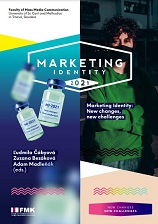Trust in The Media in The Post-Factual Age
Trust in The Media in The Post-Factual Age
Author(s): Diana BulganováSubject(s): Media studies, Ethics / Practical Philosophy, Communication studies, ICT Information and Communications Technologies, Globalization
Published by: Univerzita sv. Cyrila a Metoda v Trnave, Fakulta masmediálnej komunikácie
Keywords: Journalists; Post-factual age; Recipients; Trust; Truth;
Summary/Abstract: One of the basic features of the post-factual period is that it polarizes society, encourages distrust in the news media, public institutions, considers school education, health care, the expertise of doctors, educated people and, last but not least, scientific progress. There is nothing that cannot be questioned or refuted. Journalists are often referred to as "listeners" and liars. Quality journalistic work based on relevant resources is beneficial for society. It is not perfect, but it is beneficial. Journalists are aware of their limits and can admit them publicly. However, knowing the tangle of information, which has its own quality and relevance, is a difficult task for many beneficiaries. It is easier to believe misinformation and myths than the real truth. Therefore, some recipients fall victim to information bubbles, manipulations and social networking algorithms. Social bubbles include younger and older years, recipients with different education. The post Confidence in the media in the post-factual period describes the reason why trust in the media and journalists is important in the post-actual period, which the recipient imagines as a professional journalist and also in the contribution of critical thinking and individual responsibility of each recipient.
Journal: Marketing Identity
- Issue Year: 9/2021
- Issue No: 1
- Page Range: 80-87
- Page Count: 8
- Language: English

